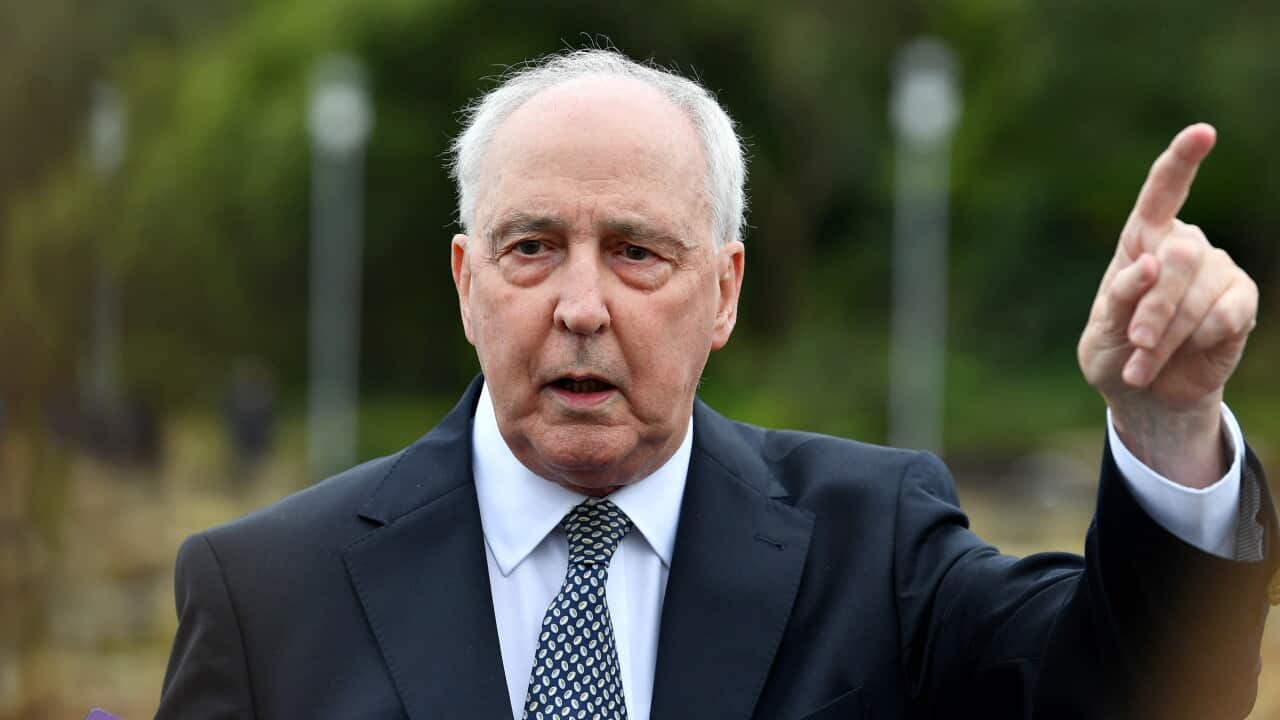The Coalition shook up Australia's , if elected, it would build nuclear power plants.
In making the announcement, the Coalition emphasised the importance of community consultation in its nuclear energy plan. But what does that actually mean?
Back in 2019, Ted O'Brien, now the Coalition's shadow energy minister, said governments should only pursue nuclear power with a "commitment to community consent for approving nuclear facilities".
As then chair of the parliament's energy committee, he released a report titled "Not without your approval".

The sites put forward for nuclear plants include Muja in WA, Port Augusta in SA, Loy Yang Power Station in Victoria, Callide and Tarong in Queensland, Mount Piper at Lithgow in central west NSW and Liddell in NSW's Hunter region. Source: SBS News
But now the Coalition has changed its tune. They will explain the benefits of nuclear power to communities set to host reactors, rather than giving residents the power to veto the plans. That means the Coalition will simply be consulting communities about how to implement a done deal.
No right to veto
The seven sites for nuclear power plants mooted by the Coalition are: Tarong and Callide in Queensland; Liddell and Mount Piper in New South Wales; Port Augusta in South Australia; Loy Yang in Victoria; and Muja in Western Australia.
In a position at odds with the Coalition's previous stance, Nationals leader David Littleproud last week said the proposed nuclear plants would not be contingent on the consent of local communities. Instead, the Coalition government would be "prepared to make the tough decisions in the national interest".
The two-and-a-half-year consultation process would "take the Australian people on a journey" and ensure they understood the plan, Littleproud said.
Similarly, Opposition leader Peter Dutton said community consultation would not be about securing the consent of affected communities, but rather about explaining why nuclear power plants are a good idea: "We will consult about the benefits, frankly, for those communities, and how we can help revitalise some of those towns at the moment that are wilting."
All this raises the prospect of communities being forced to host nuclear reactors against their wishes.
Top three issues with community consultation
The mixed messages from the Coalition highlight three problems with community consultation.
1. Will community views be acted on?
If community members are not granted the authority to influence the outcome of a consultation process, is it actually "consultation"? According to procedural justice scholars, the answer is no.
Proponents of controversial projects often point to community consultation efforts to claim they have a social licence to operate. But there are ethical concerns associated with purportedly granting people a "voice" in decisions, simply to satisfy the appearance of procedural fairness, with no intention of actually taking their views into account.
Community consultation should be a genuine attempt to gauge the views of those affected by a decision in order to shape an outcome. If this is not the intention, we should call it something else — and be clear with people about what is within their power to control.
2. Who is being consulted?
A "community" is not a united, homogeneous group. A resident of a town may also be part of other communities. Perhaps they are a member of an online Taylor Swift fan club, a Ghostbusters appreciation society, or a 5G opposition group. These other affiliations link them to other realities and viewpoints.
In our digital world, we cannot ignore the influence of online communities. Nor can we ignore the problems posed by misinformation and disinformation that create further polarisation.
In a town of people with different (and often polarised) points of view, no single voice represents "the community". There are several ways to determine what is "the common good" or in the community's interest.
International best practice shows us the solution lies in good process: ensuring genuine engagement of diverse voices at all stages, from policy design through to implementation.
3. In-principle support versus reality
The Coalition plans to take its nuclear proposal to the federal election and then, if elected, implement it with a national mandate. This ignores the fact that a voter may be broadly supportive of nuclear energy or wind power in principle, yet fiercely opposed when a project is proposed near where they live.
Opposition to local projects is sometimes derided as NIMBY-ism. But when weighing up development proposals that may benefit the environment, it’s legitimate to question whether the burden is being fairly shared across society.
Even if the Coalition wins the federal election and claims a nuclear energy mandate, support for reactors to be built at targeted locations is by no means assured — and may be fiercely resisted. We have seen such resistance in the struggle to secure a .
Genuine consultation, directly involving those impacted, is crucial to resolving such impasses and building community support.
Building trust in government
The Coalition has promised jobs and cheaper electricity for communities hosting a nuclear power station. But research suggests these incentives may not be enough to get communities on board, because the perceived risk of nuclear power plants is also key to public support.
Research also suggests that for those in the community who lack specialist knowledge about nuclear energy, much of their support, or otherwise, will depend on their level of trust in technology and government.
If the Coalition wants to build support for nuclear power, it must do more than make promises about cheap energy and new jobs. It should educate the community about the science and technology involved and ensure risks to that community are properly alleviated.
It must also work to build trust — or mitigate distrust — in the government that asks a community to take this leap.
Diane Sivasubramaniam is an associate professor at Swinburne University of Technology.
Samuel Wilson is an associate professor of leadership at Swinburne University of Technology.
The authors do not work for, consult, own shares in or receive funding from any company or organisation that would benefit from this article, and have disclosed no relevant affiliations beyond their academic appointment.





